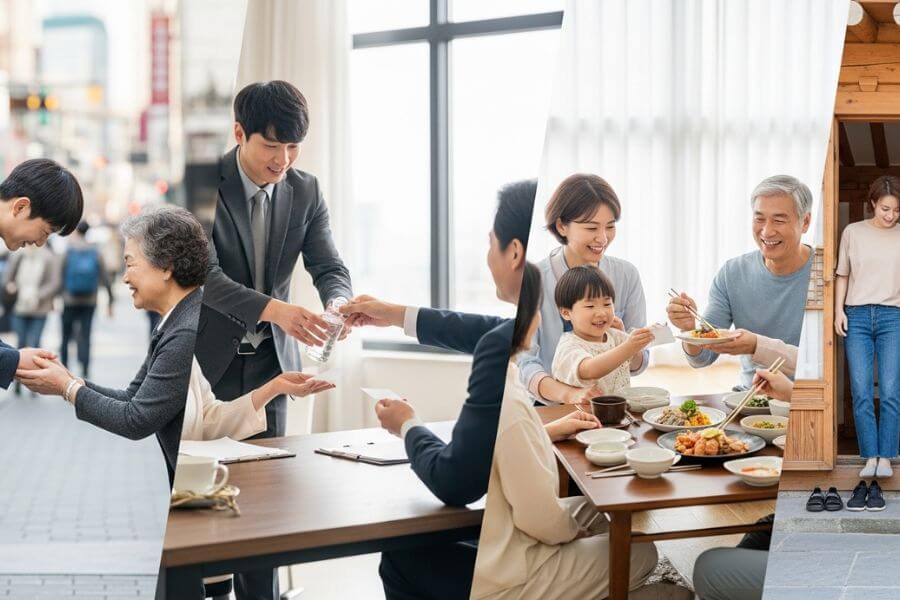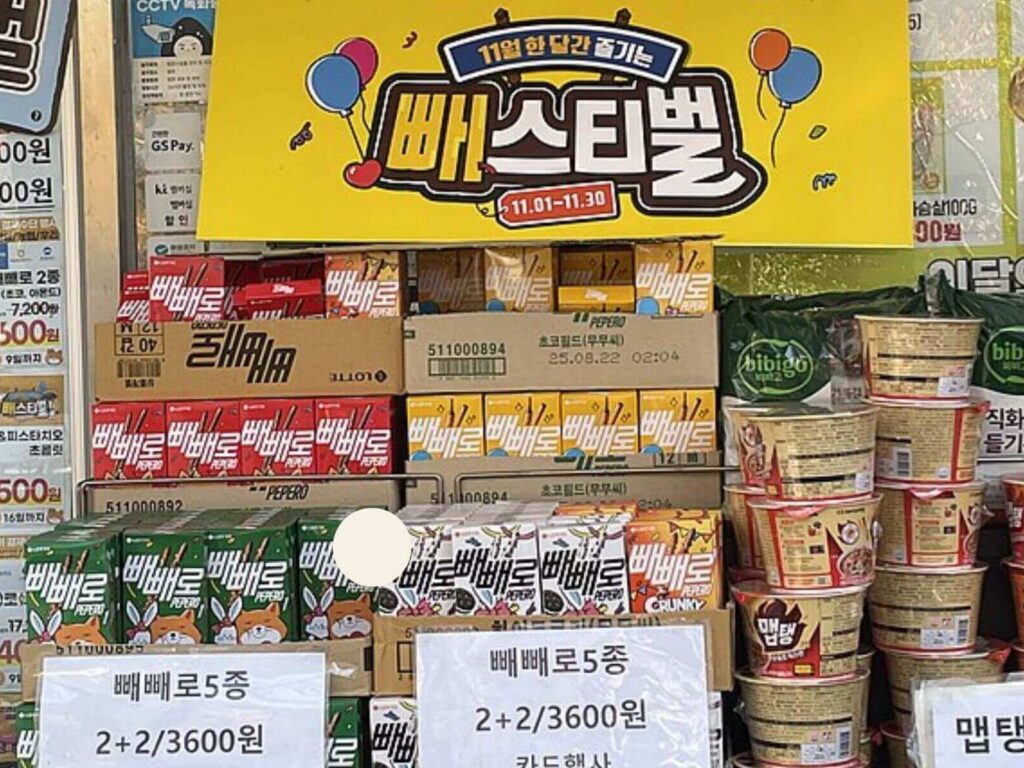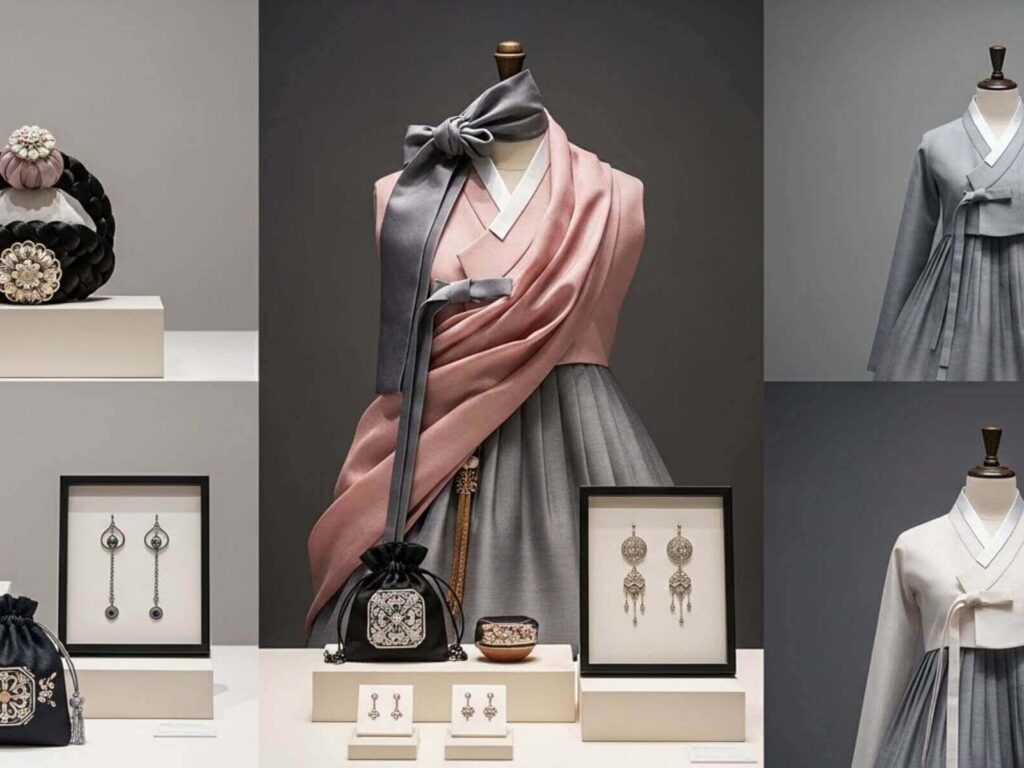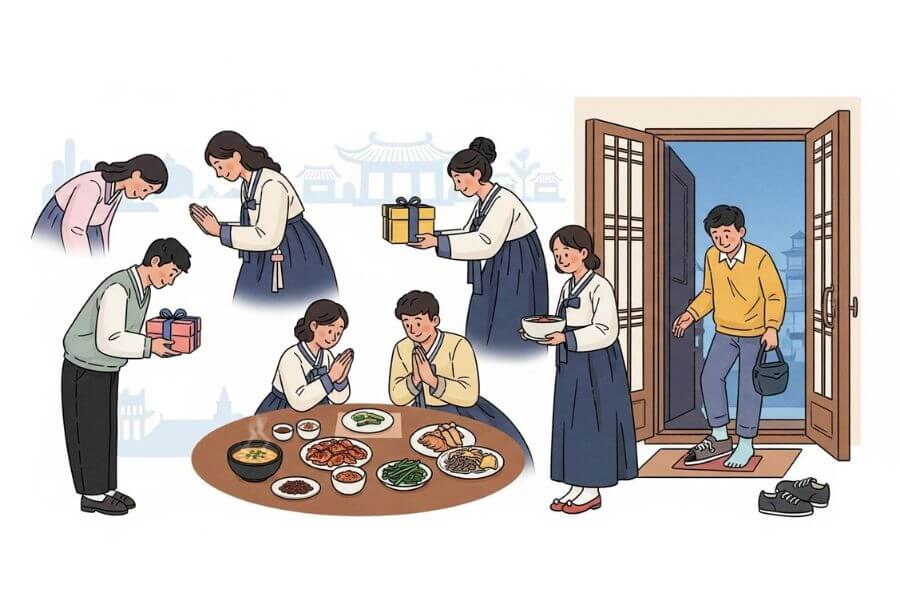If you’re planning a trip to South Korea, getting ready to meet Korean coworkers, or just curious about everyday Korean manners, understanding Korean social etiquette will make your life so much easier. Korea is incredibly modern and fast-paced, but it still holds tight to traditions rooted in Confucian values. That means manners matter. A lot.
Whether you’re grabbing dinner with Korean friends, stepping into someone’s home for the first time, or navigating a company outing, knowing a few key etiquette rules can save you from awkward moments and help you build better connections. So let’s walk through the top 10 Korean etiquette rules everyone follows.
1. Bowing is the Go-To Way to Greet People
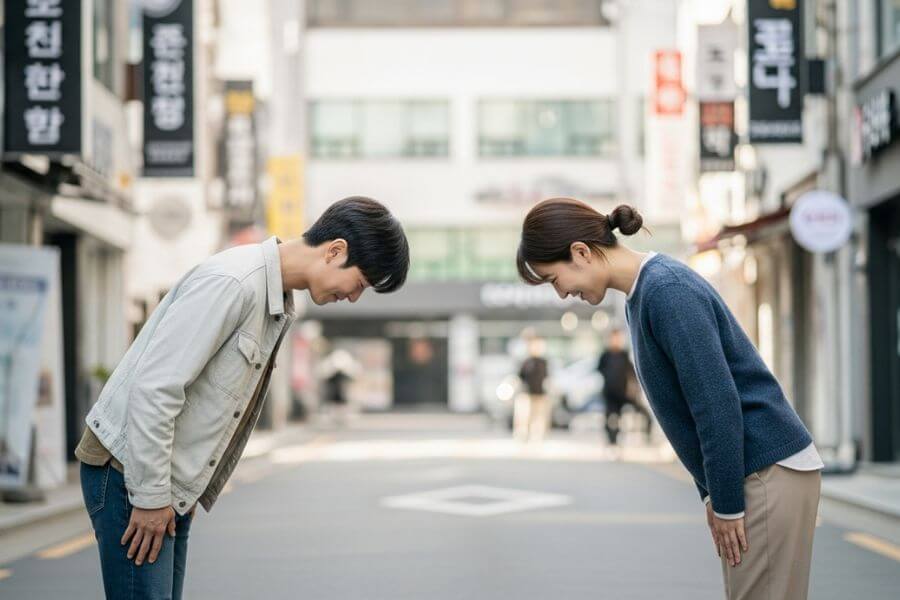
In Korea, a bow is more than a greeting; it’s a quick way to show respect. You’ll see people bow when they meet, when they leave, and when they say thank you. It doesn’t have to be a dramatic, deep bow. A simple nod of your head works for casual situations, while a slightly deeper bow feels right for elders or formal introductions. The great thing is, Koreans really appreciate any effort you make. Even a small, slightly awkward bow tells them you’re trying, and that’s what counts.
2. Use Two Hands When You Give or Receive Something
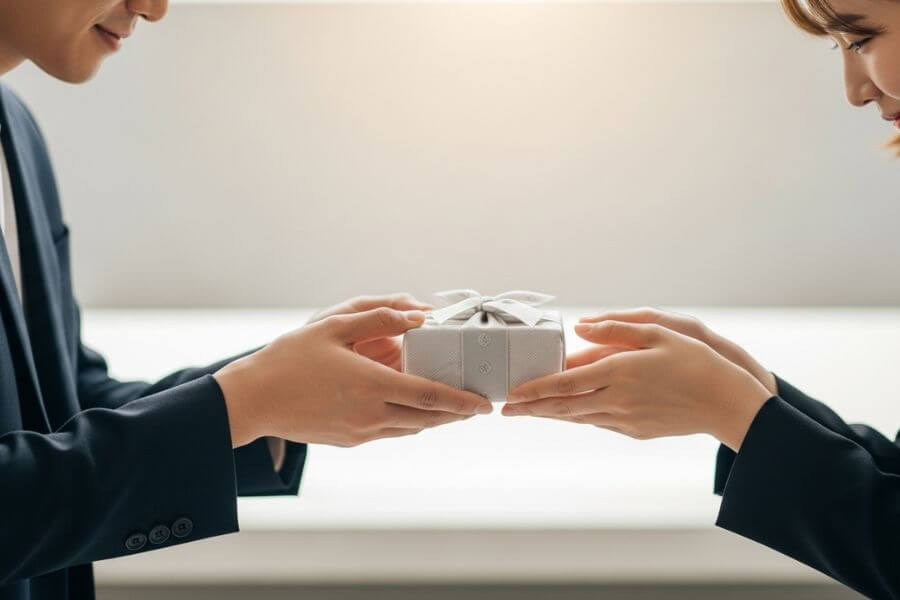
This one is super common, and you’ll notice it right away: Koreans almost always use two hands when passing something: money, gifts, drinks, business cards, you name it. It’s a gesture that shows respect and sincerity. If your hands are full, touching your opposite forearm or elbow while passing something is totally fine too. It might feel like a tiny detail, but trust me, Koreans notice it and it makes a great impression.
3. Age Shapes the Way You Talk and Interact
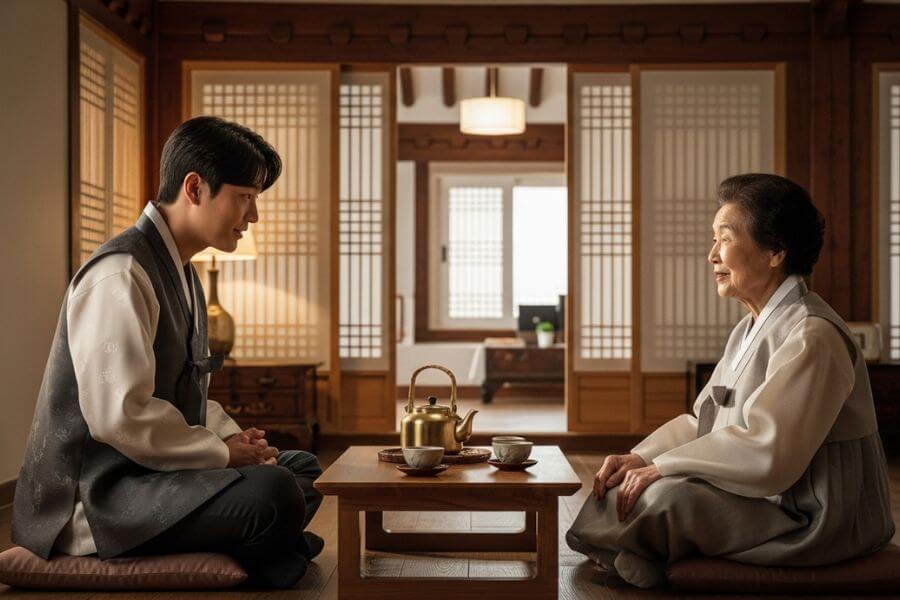
Age plays a big role in Korean culture. It affects how you speak, how you behave, and even how you should sit at a table. That’s why Koreans often ask about your age early in the conversation; it’s not rude; it helps them figure out which speech level to use. Younger people use honorifics for older individuals, while older people naturally speak more casually. Once you understand this hierarchy, you’ll find conversations flow more smoothly and respectfully.
4. Shoes Off as Soon as You Step Inside
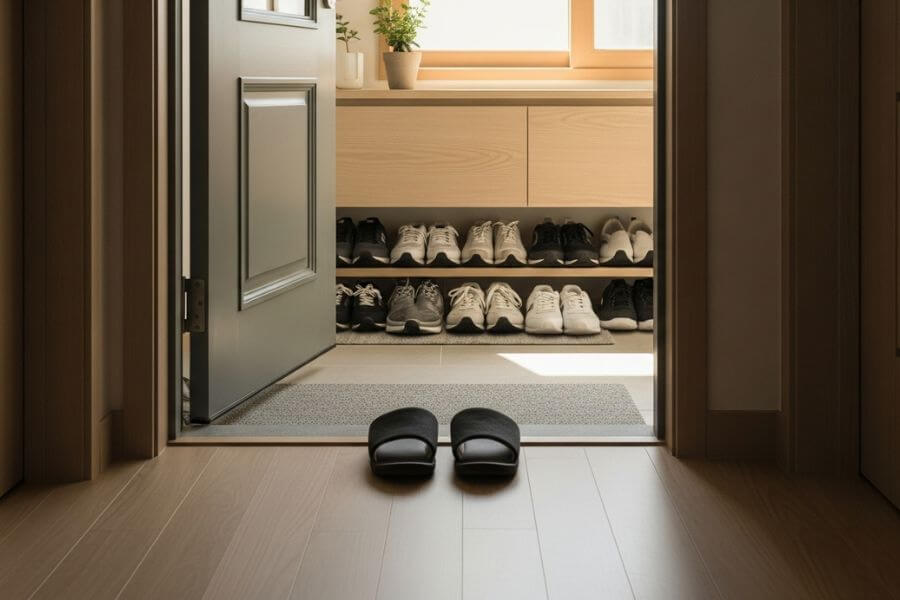
If you’re invited into a Korean home or certain cafés, restaurants, or guesthouses, you’ll almost always need to take off your shoes at the door. Many homes even have a raised entrance area just for this purpose. It’s partly about cleanliness but also about comfort and cultural respect. So if you’re heading to someone’s home, make sure your socks are presentable because you’ll definitely be showing them off.
5. Don’t Pour Your Own Drink at the Table
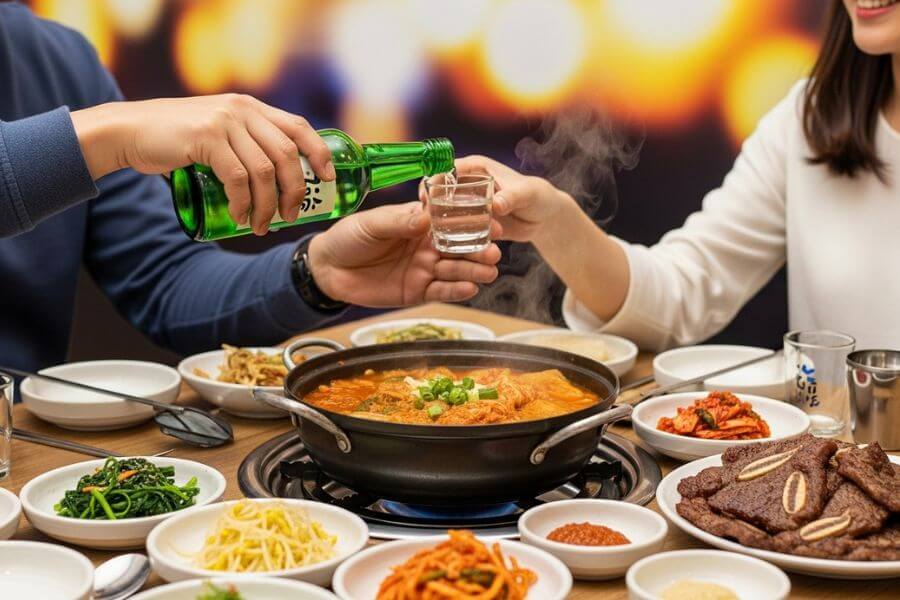
If you ever join a Korean dinner gathering, especially a company dinner, you’ll encounter one of the most important social rules: never pour your own drink. People pour for each other as a gesture of friendliness and connection. When someone pours for you, hold your glass with both hands to show respect. And if you notice someone else’s glass getting low, go ahead and refill it for them. Drinking together is a big relationship-building moment in Korea, so these small rituals really matter.
6. Cover Your Mouth When Laughing or Yawning
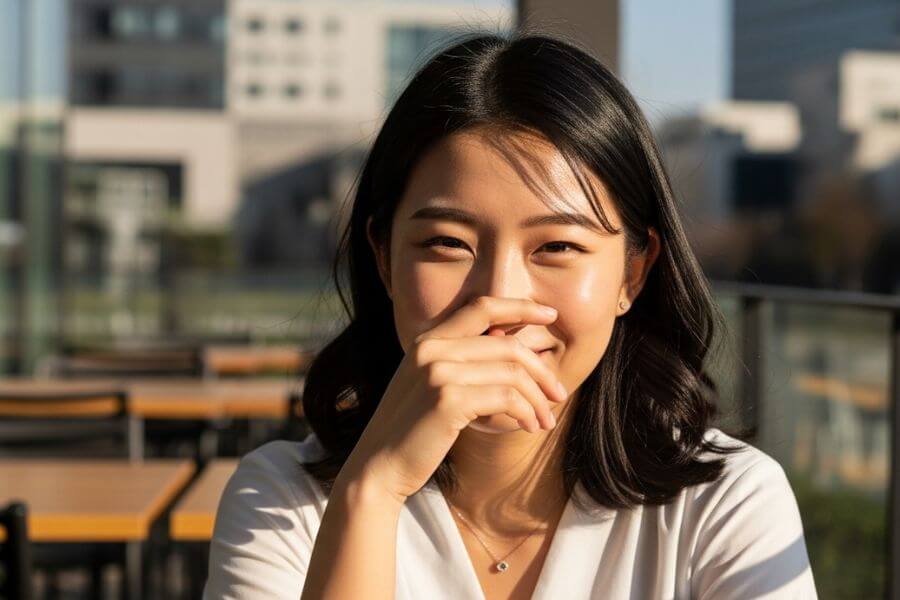
This is one of those subtle etiquette habits you’ll see everywhere once you notice it. In Korea, showing the inside of your mouth too openly, especially while yawning or laughing loudly, can feel a little unrefined. Covering your mouth is considered polite and modest. It’s not about hiding your joy or your exhaustion; it’s simply a way of keeping things graceful in public. A quick hand over your mouth? Easy fix.
7. Keep Your Voice Down in Public Spaces
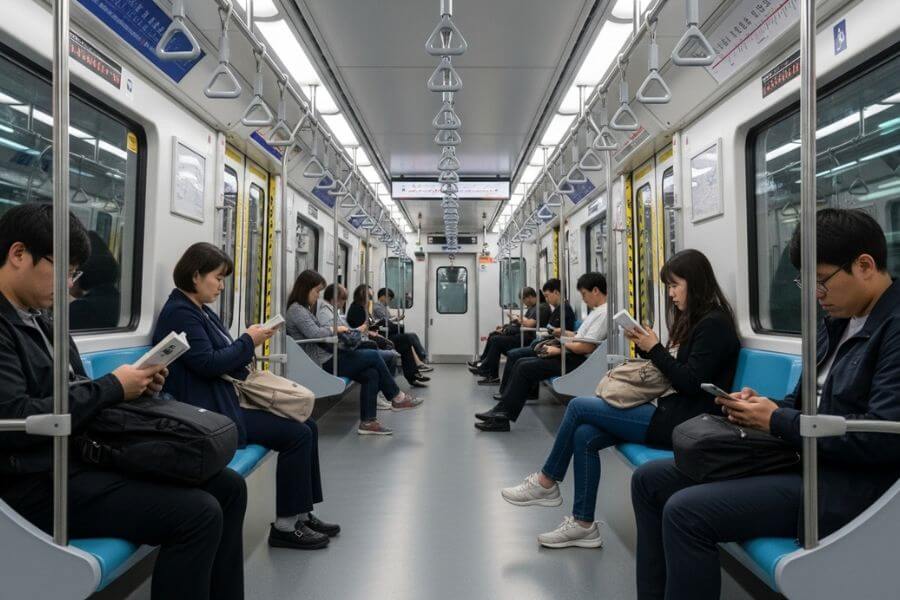
Korean cities are busy, but people generally try to keep public behavior calm and considerate. Loud phone calls on the subway, shouting, or cutting in line are usually frowned upon. Even escalators follow a quiet order: stand on the right, walk on the left. Bus and subway queues are neat and respected. It’s all about keeping public spaces peaceful and efficient. If you’re mindful of those around you, you’ll fit right in.
8. Show Extra Respect to Elders, Always
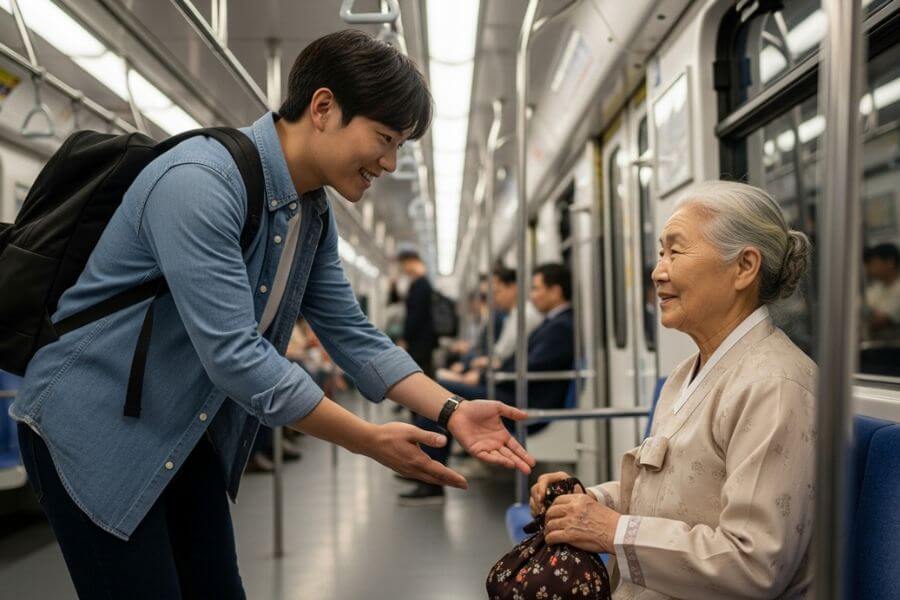
Showing respect to older people is a huge part of Korean culture. You’ll see this everywhere: younger people offering seats on the subway, letting elders start eating first, speaking more formally, or helping with bags and heavy items. It’s a simple way to honor someone’s experience and age. When you adopt these small gestures like giving up your seat or addressing elders politely, you’ll earn appreciation in return.
9. Avoid Direct Confrontation or Blunt “No’s”
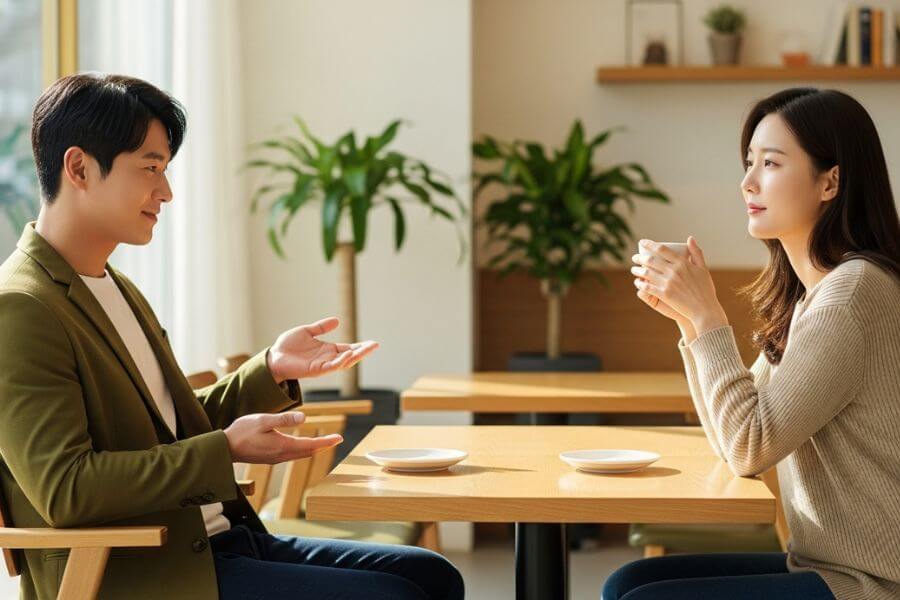
Koreans typically prefer keeping conversations smooth, friendly, and non-confrontational. Directly saying “no” can feel too harsh or uncomfortable in many situations. Instead, people soften their responses with phrases like “Maybe later,” “That might be a little difficult,” or “Let me think about it.” It helps maintain harmony and avoids putting anyone on the spot. When you’re interacting in a Korean setting, especially professionally, using gentle refusals will feel more natural to everyone involved.
10. Gift-Giving is a Sweet Way to Show Appreciation

Gift-giving is woven into Korean culture, and it’s one of the warmest traditions you’ll experience. Bringing a small gift when you visit someone’s home, meet them after traveling, or want to say thank you is very common. It doesn’t have to be expensive; snacks, fruit, tea, or souvenirs are all perfect choices. And like we mentioned earlier, always use two hands when giving or receiving the gift. It’s a simple way to express appreciation and strengthen your relationship.
Conclusion
Korean social etiquette is all about respect, harmony, and thoughtfulness. It might seem like a lot to remember at first, but everything becomes natural once you’re exposed to it. And the best part? Koreans genuinely appreciate it when foreigners make even a small effort to follow these customs.
Whether you’re bowing, passing something with two hands, showing consideration for elders, or navigating a group dinner like a pro, these rules will help you blend in smoothly and enjoy Korean culture on a deeper level. Once you get the hang of it, you’ll find that these habits make everyday interactions more pleasant, not just in Korea, but anywhere.

